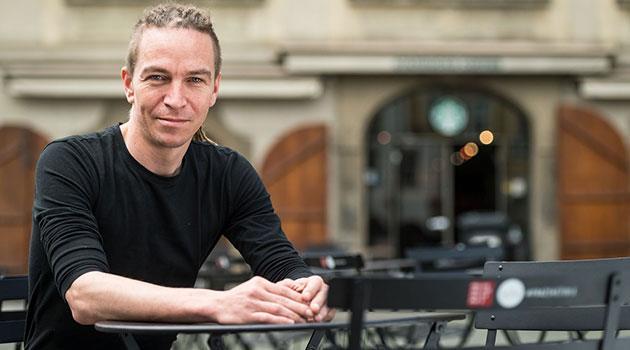Czech Spolu (Together) coalition: Education is the path to better integration of Roma, "inadaptables" don't want to conform

The path to better integration of disadvantaged groups, including Romani people, is high-quality education. That is the message of the Spolu (Together) coalition’s response to interview questions sent by news server Romea.cz.
According to Spolu, the correct path is, for example, that of awarding scholarships to Romani high school and college students. “Positive motivation could contribute to more young Romani students striving for the better future that a quality education can provide them. There are already many Romani men and women today in this society who are successful lawyers, physicians, musicians, teachers or architects,” said Spolu representatives – but they refused to distance themselves from the use of the “inadaptable” label, which in their view refers to those who have not adapted their behavior and life philosophy to the customs and values of the majority society, and who don’t even want to do so.
Election season interviews by Romea.cz
News server Romea.cz contacted the seven leaders of the political coalitions and parties that have a chance of entering the Chamber of Deputies during the elections to the lower house this year. We based our choice on polls conducted by the Kantar agency during September and sent the same set of questions to the candidates Robert Šlachta (Přísaha – The Oath), Jan Hamáček (Czech Social Democratic Party – ČSSD), Vojtěch Filip (Communist Party of Bohemia and Moravia – KSČM), Tomio Okamura (“Freedom and Direct Democracy” – SPD), Ivan Bartoš (Pirates + STAN), Petr Fiala (Spolu) and Andrej Babiš (of the governing ANO party).
We are gradually publishing their responses in this order, from the candidates who are less popular to those who are the most popular. The first candidate was meant to have been Šlachta, but he never sent us his responses.
On Saturday, 2 October we published our interviews beginning with the statewide leader of the Social Democrats, Hamáček, followed by our interview with the statewide leader and chair of the KSČM, Vojtěch Filip. We also contacted the chair of the SPD and its statewide leader, Okamura, but he never answered our questions; instead, Czech MP Lucie Šafránková (SPD) responded, so we published her answers, as well as the responses we have received from the frontrunner for the Pirate-STAN coalition, the chair of the Czech Pirate Party, Ivan Bartoš.
News server Romea.cz also contacated the Spolu coalition’s lead candidate, Petr Fiala, but he did not directly respond. An answer has been sent on behalf of the entire coalition, which we are publishing here today.
Q: What does your party have in its electoral program in terms of proposals for the inclusion of Romani people?
A: The path to better integration of disadvantaged groups, including Romani people, is high-quality education, which is one of the main priorities of the Spolu coalition.
Q: In the socially excluded localities, voter turnout has long been low. How do you explain that?
A: There is low participation in socially excluded localities above all as a consequence of their inhabitants’ low levels of information and overall lack of interest in what is happening in politics. Naturally, that needs to change.
Q: Do you have any Romani men or women running as candidates? If not, why, and if so – why?
A: All of our coalition parties are open to all irrespective of ethnicity.
Q: Some parties are speaking about what they are calling the abuse of welfare by “inadaptables”. Do you agree that such a problem exists? Are benefts being abused on a massive scale? If so, what is the financial volume involved?
A: The problem is rather about the overall targeting of welfare and its overall effectiveness.
Q: In what context do you use the term “inadaptable”, and who are you talking about? If you don’t use it, could you please explain why?
A: A citizen who is inadaptable is the kind of person whose behavior and life philosophy is not adapted to the customs and values of the majority society and who does not want to adapt.
Q: The prices of real estate and rental housing are constantly growing, and housing is becoming unaffordable for ordinary families. Is the building of social apartments the solution? Will you be seeing through a law on social housing?
A: As a coalition we have defined our five most important priorities that the next Government must dedicate itself to with all its might once the elections determine the winner. Affordable housing is unequivocally one of them. We will arrange for preferential mortgages for first-time homebuyers (reduction in the amount of compulsory co-participation by a guarantor, direct state aid for such co-participation, a bonus for the birth of children). We will introduce new standards for affordable social housing and starter housing.
Q: How would you like to prevent trafficking in poverty?
A: It is important that this kind of trade stop being advantageous to the traffickers in poverty. The logical solution, therefore, is to cap benefits for housing and to ensure that there are enough social apartment units. Generally, it is necessary to better target support and to condition it somehow. Without effective targeting, as is the case today, there is no solution to this.
Q: The Constitutional Court has abolished the housing benefit-free zones. What is your opinion of that decision? Will you advocate for the adoption of such a law in the future?
A: The problem of trafficking in poverty sould be solved as we describe in our previous answer.
Q: Are you considering legislating compulsory school attendance until age 18, as is the case elsewhere in the world, to guarantee that some children, after primary school, don’t fall out of the education system?
A: The best way to prevent children ending up outside the education system once they complete their compulsory school attendance is to make sure there is enough motivation for them to continue their education. Children must know, already during upper primary school, that acquiring new abilities, knowledge and skills – education – really makes sense. This especially applies exactly to children from disadvantaged environments. Improving instructional quality in upper primary school is important.
Q: Some regions, for example, the Ústecký Region, are considered below-average compared to others in terms of education. How do you plan to improve the situations in regions where there have long been lower numbers of high school and college graduates?
A: We see it as crucial to support the kind of education that is based on an individual approach to each pupil. One way is to economize and simplify the financing for educating everybody together, above all for assistants to educators. Our coalition’s priorities include concentrating on the differences between regions when it comes to providing high-quality education. We will support developmental and interventional programs to aid regions with below-average educational outcomes and we will also support working with children’s families from the socially disadvantaged environments or with children who speak a mother tongue other than Czech.
Q: What is your opinion of the targeted support for the education of Romani students? Specifically, for example, scholarships for Romani high school or college students? How can we increase the levels of education achieved by Romani men and women in the Czech Republic?
A: Awarding scholarships to Romani high school and college students is certainly the correct path. Positive motivation could contribute to more young Romani students striving for the better future that a quality education can provide them. There are already many Romani men and women today in this society who are successful lawyers, physicians, musicians, teachers or architects. Such people should be more frequently visible in the media space so they influence others positively.
Q: What specific steps should the Government take during the next parliamentary session so that the state sufficiently prepares itself for the threat of yet another COVID-19 wave or for a different pandemic in the near future?
A: We consider it most important to immunize as many people as possible and also to get a booster shot to those groups that are most vulnerable as soon as possible. What is essential to this is a campaign that will educate people effectively, the populace has to be well-informed, their ability to effectively respond to disinformation is related to that.
Q: How, in your view, should immunizations take place? Should they be compulsory, for example? Should that be for all, or just for certain professions that customarily come into contact with a wider group of people?
A: Immunization must be voluntary. We are not able to force anybody to get vaccinated.
Q: How do you plan to approach immunizations in the socially excluded localities? Are you planning more outreach about vaccination, or even social work right in the field that could motivate the inhabitants of such places to get immunized? Will your party address this in any special way?
A: One of the paths forward proposed by the Spolu coalition is that immunization teams would travel around the regions, do direct outreach to people who are unvaccinated, and explain the purpose of vaccination to them.
